I originally wrote this as a supplement to Erin Chew’s article on how Asian men could be allies to Asian women although it seems even more timely with the new YouTube documentary from Natalie Tran about WMAF relationships (Disclosure: This author was interviewed as part of the documentary).
Both Erin and Natalie’s outreach was met with both support and anger from Asian men and women of all walks of life, and it created a lot of debate between the two camps that either agreed or disagreed with her sentiments.
In addition to my original response to Ms. Chew’s article telling Asian men who we can be allies to Asian feminists, I would also like to outline how Asian women may also become allies to the Asian men they’re asking allyship from. Like any relationship, allyship is a two way street between two disenfranchised minority groups, and as the Asian community as it stands is fairly divided between gender, it only seems natural to ask for Asian women to do their part as well.
Although before I start that, I want to say to my Asian brothers first:
You can both simultaneously recognize how WMAF relationships are a symptom of a much broader issue while also being friends and, dare I say, allies with WMAFs and Asian feminists. It is not an either / or proposition.
But in order for that to happen, Asian feminists and WMAF couples need to also make a good faith of outreach, otherwise it will fall on deaf ears.
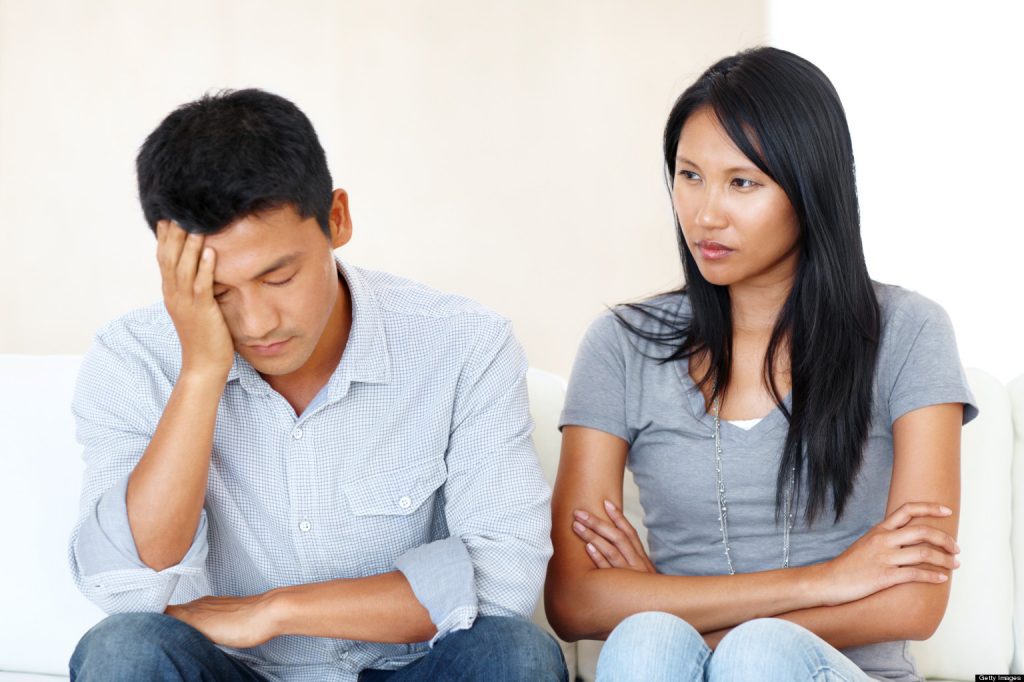
The Divide Between Asian Men and Women is Real
BACKGROUND
But how is it that I would be the one to represent Asian men?
Whether you agree with me or not, I represent a significant number of Asian men and their voices. I have a unique and irreplaceable knowledge of Asian men, not only because I myself am one, but because for the past ten years I have worked with thousands of Asian men on an individual basis and have come to intimately know each and every one of their struggles.
I have learned first hand from my earliest days about not only how we are treated in Western society, our perceived slights and micro-aggressions, and our fears in regards to dating and other social interactions, but also how women – Asian or not – react to us. I propose that I have the most unique and experienced voice in these manners, and this wealth of knowledge only lends to the legitimacy of the items outlined in this guide.
Furthermore, I am trying to create a healthy space for Asian men where I see very few doing this. So in response to Erin Chew’s article and Natalie Tran’s documentary, I want to challenge you to be an ally for Asian men FIRST. This is critical, because growing up as an Asian American man, we were taught that we were inferior BY Asian American women.
They were the ones allowed to write the narrative of what it meant to be an Asian person integrating into White society, and we as Asian men were largely forgotten and ignored, sometimes ignorantly, other times maliciously. We’ve felt for decades that when Asian women speak, it’s at us, not with us, and so by Asian women extending this olive branch to us, it will allow us to heal and help us help you.
The new show “Chinese Burn” is just an example of this where Asian women in power, in an attempt to gain societal advantage (ie white privilege), do so at the cost of Asian men. And this has been happening for a GENERATION. Asian American women had “Joy Luck Club” (which also put down Asian American men) and now we’ll have “Crazy, Rich, Asians” which was written by an Asian male and doesn’t put down either Asian men or women.
As Asian American men, we grew up being told by both Hollywood, but also by our own sisters, aunts, and mothers that we were inferior. Natalie Tran became so hurt by angry comments on her YouTube channel once she was in a WMAF relationship, that she got YouTube to sponsor her documentary.
Now imagine those angry, anonymous comments start when you’re young. And they’re constant. They’re not only on the internet and TV, but also from your friends. And your family: like your sister, your niece, your aunt, and your mother. FOR YEARS.
The Sins Of Your Mothers created an entire generation of Asian American men with chips on our shoulders from the moment we were born on Western shores and continues to this day.
And no amount of “Let’s be allies” is going to knock that chip off of our shoulders, especially if they’re coming from the offending party and who won’t even follow this first step at becoming an Asian Male Ally (#AsianMaleAlly)
So here’s how you, as an Asian women, Asian feminist, or WMAF couple, can take to become allies of Asian men:
1) Admit Your Privilege
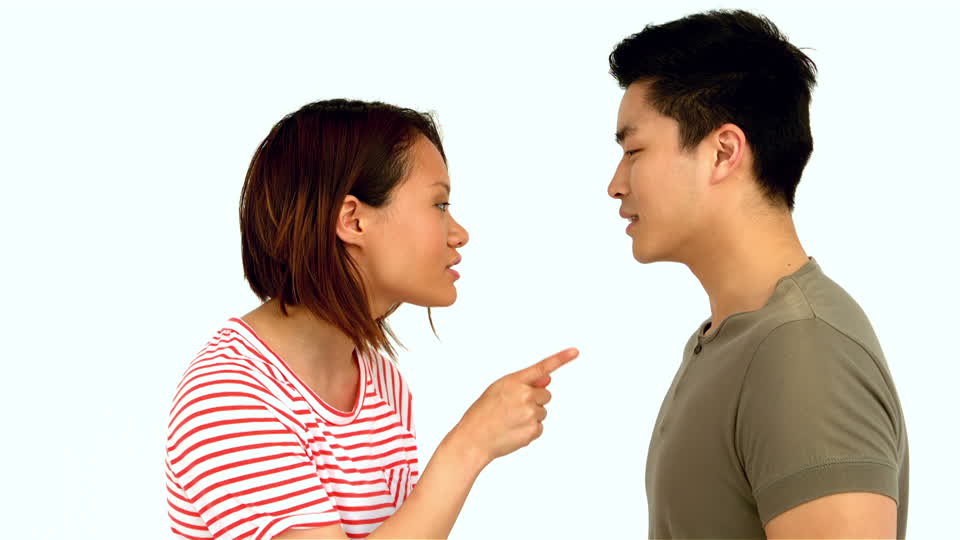
Asian women can receive White privilege by proxy when dating a White man
I will start off by saying, loud and clear for everyone in the back, that I- as a man- am the recipient of male privilege.
I will never know the dangers of genderized pay inequality, sexual harassment, rape, and other forms of privilege.
I teach my students to always be aware of not only their male privilege but the real disadvantages women face in the dating arena and society as a whole. They come to understand that we don’t suffer from sexual assault like women do.
That they have different and unique feelings about dating and sex that likely differ from their own. That being a woman in a man’s world comes with inherent obstacles that men may not face. I get it – trust me – as there’s plenty of literature and enough in the cultural conversation that allows me to become easily, even passively, educated on the matter.
With that being said, there is one privilege I can never have, nor will I ever have access to, and that is White privilege.
Asian women, on the other hand, have the option to buy into White privilege by proxy through their partnerships with White men.
Studies have shown that people of color are less likely to be called back for a job interview simply due to their names sounding “non-White”, and many Asian women can bypass this through marriage to a White man. In a hypothetical situation, a woman named Katie Wong can marry a White male and become Katie Smith. When Mrs. Smith puts her name on a resume, she is, for all intents and purposes, a White woman. She will be more likely to get a callback from a job. She will be more likely to be hired. She has real, undeniable access to a small portion of White privilege that will translate to real financial gains through getting better job opportunities.
Compare this to her Asian male counterpart who will always retain his last name, such as Araki, Liu, or Perng, and he will, on paper, be seen as a perpetual outsider.
Incidentally, if an Asian man marries a White woman, his wife will lose that small portion of White privilege, as she assumes an Asian identity on paper as far as outsiders are concerned. Suddenly Ashley Johnson becomes Ashley Nguyen, and her job prospects will suffer accordingly.
Any racial prejudice that an Asian female had experienced on paper will soon be experienced by the White woman who chose to marry in, and to deny this fact is to deny the real effects experienced by Asians and other people of color and actual science that has been done on the matter.

The White woman, to some extent, will lose her White privilege when marrying an Asian man
And while Asian women doesn’t have true White privilege, she has real access to it, even if she doesn’t choose a White man as her life partner. This is because White men have deemed Asian women as desirable and for their consumption, so they will go out of their way to ensure there is a place for them at the table.
White women, like all women, are biologically and through their upbringing, are more likely to socially integrate Asian women into their social circles because women often choose long-term friends based off gender and not off race. Asian female narratives are allowed in schools and society. Asian women are portrayed more prominently than Asian men in film and other forms of media (which is predominantly run by White men). Asian women are more readily absorbed into society when their Asian brethren are essentially left by the wayside and are made to feel like they are unable to ask for help.
White society may not overtly tell Asian men that there isn’t a place for them, but through real and perceived micro-aggressions and a system that denies men of color access to the same opportunities that other White men have, our privilege is reduced in comparison to White male privilege.
So which is better to have or to have access to? While it depends on a case by case situation (as a male I’m less likely to be raped, for example), on a day to day basis in Western societies, White privilege can be better to have than male privilege.
Male African-American comedians have joked that you can avoid tickets (or worse) if you drive with a White friend. Having a White-sounding name will result in more job opportunities. In the case of the recent airline incidents, Dr. David Dao was dragged across the plane with no one coming to his aid followed by complete character assassination, whereas the incident with the White mother showed her walking away relatively unscathed, with people standing up for her, and with no attacks on her character by the media.
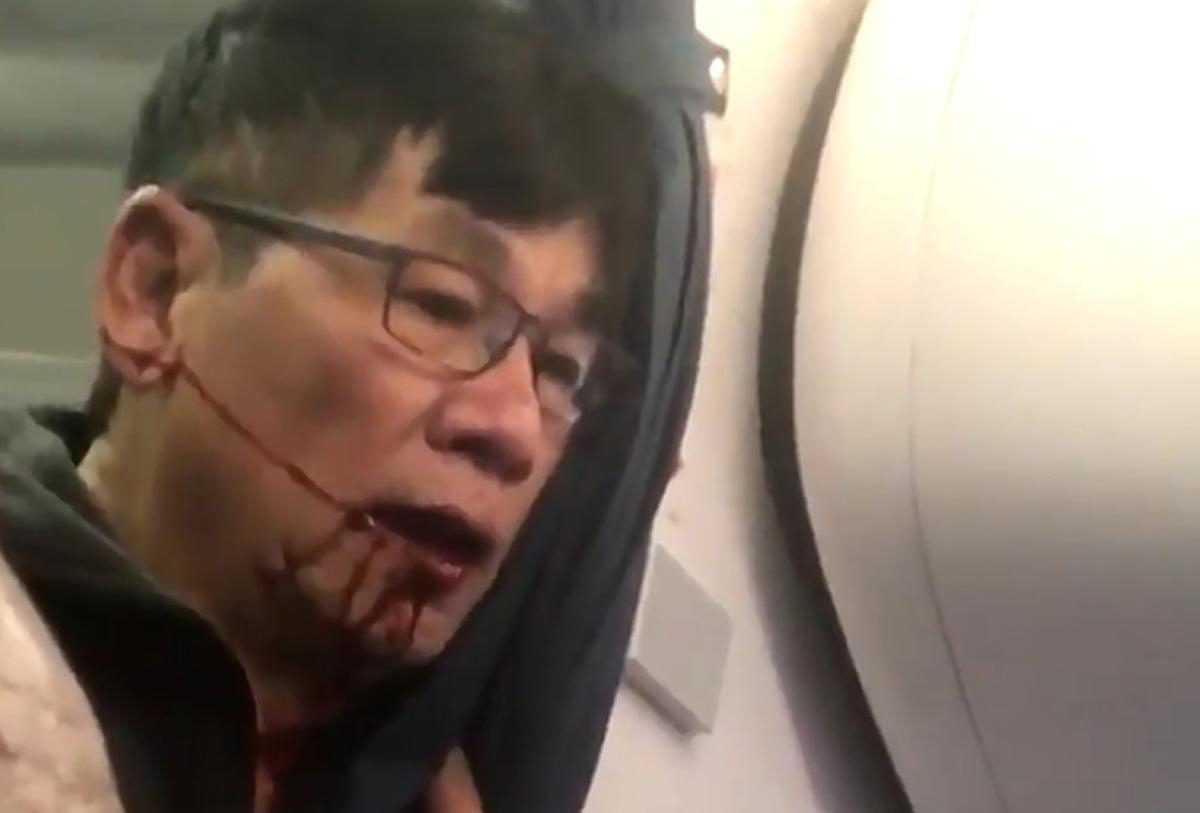
The negativity Dr. Dao received was certainly tied to his race/gender combination.
Then there are the unpredictable things that happen in daily life – one AMWF couple I know experienced this first hand in a bookstore. The White woman went to use the restroom, and the Asian man was seated at the cafe, reading. An older White male employee came up to him and demanded that he vacate the premises because he had not purchased coffee. Confused, the Asian man asked if he needed to purchase one to remain seated. The White man responded by picking up his books and telling him that he needed to leave. The White woman returned to a scene right out of a movie – the White man literally grabbing her Asian boyfriend’s books right out of his hands. The White man had raised his voice against him and demanded he leave the store, even though the Asian man was asking for clarification on what he was doing wrong. The White woman walked up to the scene and asked what was wrong, just as the Asian man originally had. The White man visibly calmed down and explained that a cafe purchase was needed to continue sitting at the table. The White woman simply responded by promising to buy a coffee, and the White man walked away, enraged and deflated but no longer antagonistic.
The White man respected the White woman enough to tell her what she needed to do in order to remain at the cafe, but he was eager to eject the Asian man without an explanation.
Time and time again, I hear stories similar to this that confirm my belief that, in normal, everyday, mundane scenarios, White privilege can often trump male privilege, and Asian men simply don’t have access to this in the same way that Asian women do. If Asian women were to admit this fact to her Asian brothers, we would welcome her commentary with open arms and begin a dialog with her, as this is necessary for us to heal our very deep and very open wounds.
If WMAF (and especially the AFs in such relationships) can’t admit that they have (and use) access to white privilege, well, I suspect that the feeling of frustration one would feel is the same as if a feminist tried to argue with a male chauvinist who couldn’t acknowledge his own male privilege. If you in turn can’t admit your own privilege, then any dialogue will fall on deaf ears.
2) Emasculation = Dehumanization. Emasculation Is More Than Dating Issues, It Really Means Asian Men Aren’t Human.
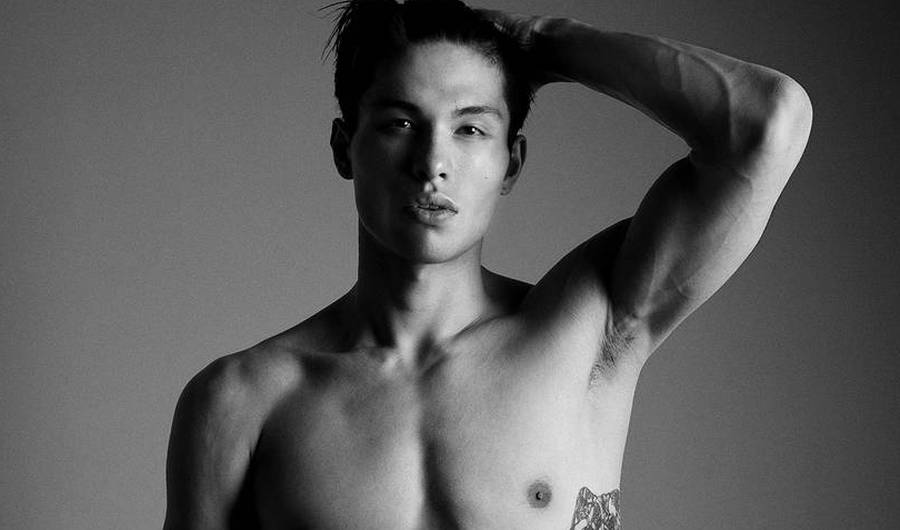
Asian men are constantly dehumanized in Western societies
I’ve heard from too many AFs that Asian emasculation isn’t a real thing, that it’s really just about “getting pussy” or “getting your dick wet.” First, that’s just some serious slut shaming, as if our only value as Asian men have to be defined within the context of a marriage. And secondly, the dating deficiency is not a silly or superficial concern – at its core, it says Asian men aren’t HUMAN.
The act of saying, “I don’t date Asian men” is an act of profound dehumanization.
You aren’t simply saying he as a man is not worthy, but that his race and culture is unworthy. It completely debases his humanity. You are simultaneously debasing his gender, his race, his culture, and his entire self-worth. You’re saying he’s subhuman on multiple levels. It’d be one thing if this was something that was said to us maybe once or twice, but it’s a continuous onslaught from which we cannot escape that starts when we are young and it comes from our own family and friends.
One of the biggest issues Asian men face is the dating arena: it’s simply stacked against us. We’re not seen as sexy due to the perpetual stereotypes lobbed at us through media and daily interactions, and this has real impacts on not only our self-esteem but our standing in society.
Slights against our manhood are made in movies and film, which turns into social commentary made to our faces in school, at work, and in the dating scene. According to the US Census, 1 out of 5 Asian American men will never marry, and by telling us that we have to focus on your problems first while you’re safely in the arms of a White man serves only as further degradation.
Again, for many people it doesn’t matter and congrats to them.
But for others, love and the quest for love and acceptance is one of the most important things we humans can ever strive for.
If you can’t or won’t recognize this basic fact, there can be no dialog. If you’re not willing to understand the issues that your brothers, cousins, sons, and friends face, you cannot reasonably expect us to be excited to do the same for you and your concerns.
If a wife asked her husband to do things for her but did nothing for her husband in return, the marriage would be an unbalanced, unhappy one, and the relationship would soon crumble. This conversation must include both sides, both Asian male and Asian female, who are equal in value and have valid, real concerns. To diminish and minimize the very real pain that we feel is not going to help us heal (and will, in fact, reduce us further), nor is it going to help you get your own points across.
3) Don’t Be Defensive Or Dismissive And Make Sure You’re Extending The Olive Branch
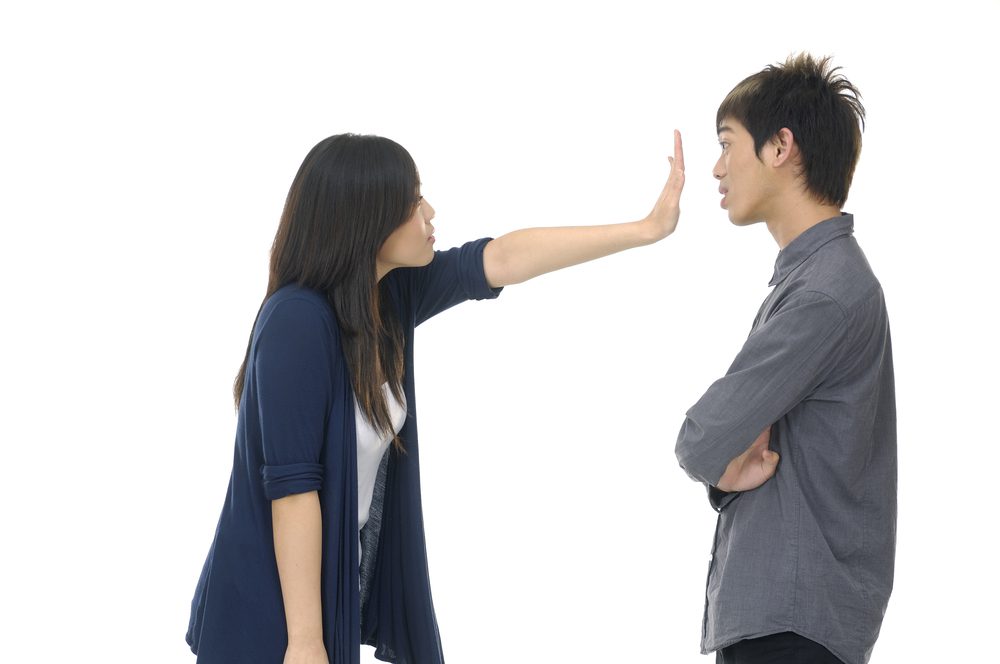
Stop policing our thoughts and feelings. They’re just as valid as yours.
It’s difficult to create a dialog if you come off as dismissive of our struggles.
I’ll give a prime example, anytime the WMAF discourse reaches a high profile (rather it be Natalie Tran’s documentary or the show “Chinese Burn”), some Asian feminist writers will pull a Trumpian card and claim both sides are equally to blame or make a false equivalency argument that there’s “fine people on both sides.”
That the Asian male anger and rhetoric against “Chinese Burn” isn’t warranted. That AMs should stop it, it’s wrong, blah blah blah.
I’ll agree that it isn’t personally helpful to the AM who makes those angry remarks (and I myself don’t engage in that), but to everyone who says we SHOULDN’T be angry or that we don’t have the right to our own emotion and reaction to it, well FUCK YOU.
If you went to a significant other to discuss your issues that you had with them, and they became defensive and dismissive, the problem would never be able to be addressed, and you would be left feeling not only unsatisfied but now worse than before. Everytime some think piece comes out from the Asian feminist and WMAF sphere that we Asian men don’t have a right to our feelings and that we shouldn’t express them, just makes more and more AMs angry.
Your pride would take a hit, and you’d feel helpless – as if your words weren’t powerful enough to make your points known to the very person that was hurting you. When Asian women deflect blame in defense and dismiss our problems, we feel that very real pain of not being listened to. It stings, and it’s been stinging for generations now.
And speaking of generations – there’s been a belief since childhood that Asian women started the antagonism decades ago; that they’re the ones that began this divide between Asian men and women. It doesn’t matter if it’s right or wrong, we feel this.
This is because White society allowed Asians like Yoko Ono and Amy Tan in and allowed them to dictate the Asian narrative. They told their stories, which are important, but the story of the Asian male was told by writers like Tan, who seemingly had a vendetta against Asian men and painted them negatively at every turn.
I remember as a kid, I watched “Joy Luck Club” in school as part of the curriculum. Teachers saw it as progressive material, and the White, Black, Latino, and Asian female students ate it up.
But as an Asian man? It sucked. We represented all of Tan’s dislikes about her Asian heritage – the Asian man symbolized the archaic parts she so desperately wanted to cast aside in order to fit in to a White mainstream society, and this was displayed onscreen for all to see.
Clearly, finding a place in a White society as an Asian child is difficult, but Tan decided to make it easier on young Asian girls and women at the expense of Asian boys and men. It hurt, and to this day her works and the works of women like hers continue to hurt her brothers – not help them.
Asian men can be misogynistic, but if you can’t at least acknowledge your privilege (and/or access to privilege), and you go straight to being defensive and dismissive, the division will continue. If you are able to at least do this, then you’ll find Asian men to be more receptive to you and your ideas.
That olive branch of privilege checking needs to happen first, and all of our shields will come down. The fact that Eliza recognized and accepted her privilege, more Asian men (not all by any measure) would hear her out.
4) Don’t Expect Us To Answer To Motherland Misogyny – Just American
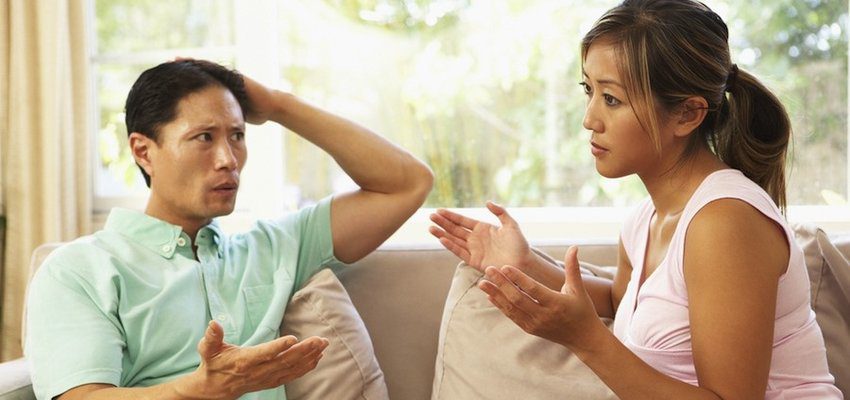
We have to put a stop on this one – it’s gone unchecked for too long.
If you’re too upset to even acknowledge, as an AF of how you benefited from the sins of your mother, then how do you expect us to not be upset when you try to make us take responsibility for the sins of our great great great great great grandfathers? In another country, no less? How do you expect us to admit to this patriarchal construct that we don’t even play into?
Asking us to answer for the patriarchy in China, Japan, Korea, Taiwan, or whatever is like asking us to answer for the patriarchy in Sweden, Russia, Brazil, or France. Sometimes the only thing tying us to the countries of our heritage is our last name – many of us, just like many of you, grew up in Western societies like the US or Canada.
We’re not gonna bind your feet, sell you into an arranged marriage, make you stretch your necks long by way of carefully placed rings, or any of the archaic practices that Asian patriarchy placed on women.
Take any and all of that out of the equation because that simply doesn’t apply to us. We’ll take responsibility for the parts we play, but be reasonable – we don’t play into the Asian male patriarchy back in the motherland anymore than the next (White) guy.
Once we have established that we’re only responsible for the patriarchy we directly play into – Asian-American (or Canadian, Australian, etc) male patriarchy:
Please tell us exactly what is so bad about Asian-American male patriarchy that White male patriarchy is better? How are the Asian male patriarchy worse – like a magnitude difference – between White?
With the way Asian women treat us on a daily basis (either ignoring us completely or with disgust and revulsion), you’d think we were evil in human form. All our lives, we’ve heard about the Asian male patriarchy and how evil it is.
But you don’t see Asian men controlling the reproductive rights of the women, embezzling millions of dollars on Wall Street, cruising Asian countries for the sole purpose of sleeping with Asian women (consensual or not), or using their positions of power in organized religions to rape young boys – you can chalk all that up to White men.
But let me guess – not all White men, right? #NotAllWhiteMen
Why is it that blanket generalizations are acceptable when placed on Asian men, but the minute White male patriarchy is on the line, Asian women rush to the White man’s side and treat him as an individual?
It’d be great if you could extend that courtesy to Asian men as well and see us for the unique individuals that we truly are. Maybe then it’d be easier to see that the Asian-American male patriarchy is actually not as bad as it’s being made out to be.
5) We Are Not Your Liberal White Progressive Boyfriend With A Yellow Paint Job
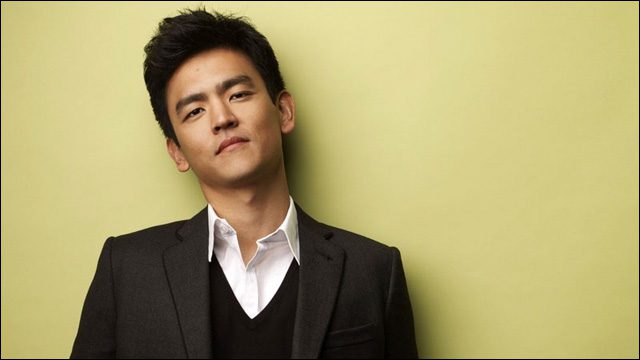
We will define Asian male masculinity – we don’t need you to give one to us.
If there’s one conversation we’re constantly having, it’s what defines Asian male masculinity. It’d be one thing if we as Asian men were allowed to define our own masculinity and what it means to be an Asian man, but we aren’t being allowed that right; instead, we have both mainstream society and Asian women policing our masculinity and telling us what it means to be an Asian man. We are being defined by outside entities and are unable to come up with an identity on our own.
This is erasure. We’re being erased, and instead we have pressures on us to basically hold the same “White progressivism” values that White men have.
Instead of ascribing values to us, we need to be able to create our own masculine space and define those values for ourselves. In these safe spaces where we cultivate a healthy Asian American masculinity, we cannot have the constant policing of the Asian woman who is essentially enforcing the constructs White America has forcefed to us – the very values that many Asians have internalized (which are detrimental to both men and women in different ways). Forcing us to continue to adopt these values without our consent is policing our very masculinity – something that we need to figure out on our own.
And during our conversations, we’ve learned one important truth, and that’s that we are not going to have all the same values as White progressivism because that’s another construct of White privilege (something from which we don’t benefit).
By continuing to push your values onto us without our consent, you are showing us that you’re not willing to work WITH us, and instead are speaking AT us. If we told you what Asian femininity is supposed to look like, you’d probably tell us the same thing. The Asian feminist would laugh in my face, and rightly so, if I tried to mansplain to her what her Asian femininity should be. And the same goes for Asian feminists and WMAFs dictating to us Asian men what it means, and what it feels, to be an Asian man.
Understand us, and understand our need to be different than White men because we just are.
6) Stop Equating AMWF As The Same As WMAF And Stop Equating The “Bragging” Done On Both Sides (AMWF / AFWM) As Equivalent – They Aren’t And It Isn’t.

We’re building ourselves up – something we have to do after we’ve been torn down for so long.
Referencing number one (acknowledging privilege), Asian women get instant access to power that Asian men will never have once in a WMAF relationship. You as an Asian woman will be able to buy your way into a power structure that we’ll only be able to look at from the outside. On top of that, we as Asian men receive more harassment and racism than you may be aware of. Asian men are perceived as weaker, so we’re consistently targeted in robberies and other violent crimes.
No amount of “bragging rights” or “trophyism” gives the Asian man more job interviews, more access to economic, social and political power, and other signifiers of white privilege. But an Asian woman marrying into a white family will.
In the dating arena, it’s an open secret that White dating coaches teach their students to steal women from an Asian man, as “he won’t fight back”. Asian men have to constantly fend off physical and verbal aggression from White men that you as an Asian woman may not see, and for an Asian woman to assert that WMAF is not toxic is a joke that both Asian men and White men understand, for the Asian man sits there, dumbfounded and angry, while the White man sticks his tongue out at the Asian man behind his tone-deaf Asian woman chastising US for deigning to think that we somehow measured up to them.
Another thing of note – an Asian woman will probably never know what it’s like to be the gender responsible to approach women in the dating arena. It can be scary, nerve-wracking, and cause a lot of anxiety. Being told “no” is scary, and I can tell you that I have to coach a lot of men that have a fear of asking a woman out because they are so afraid of the word “no”. So what happens when they not only hear “no”, but “no, I don’t date Asian guys?”
How would you feel? How would your son feel? Your brothers? Your cousins? Your friends?
Ladies – we have heard this more times than we can count, and we’ve heard it come from the mouths of Asian women more than any other race of women.
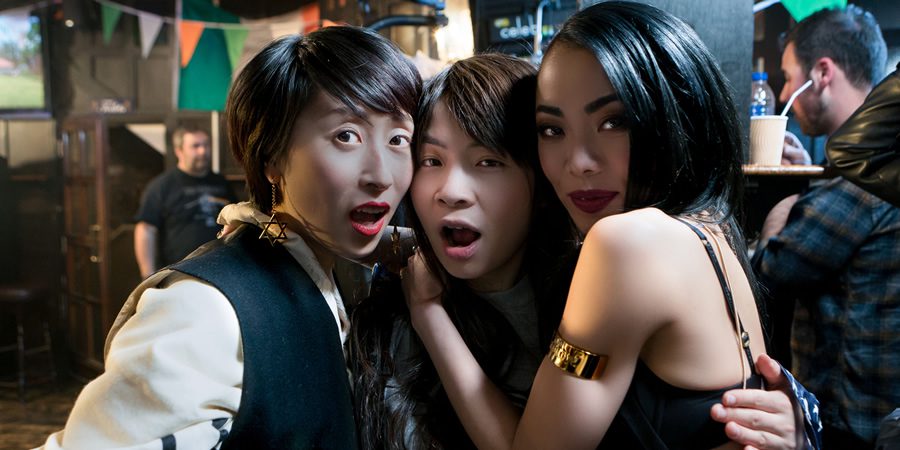
Written and acted by two Asian women, these “Chinese Burn” stars invented the term “DAG” (Desperate Asian Guys)
And for some reason, this hatred of Asian men extends to their bedrooms (see examples in “Chinese Burn”). When they talk about why they love White men, it often has to do with why they hate Asian men. As if they have this primal, visceral need to put down Asian men to validate their attraction to White men. Do White women do this? No, not really. If she loves Asian men, she talks about why she loves Asian men, and White men are usually absent from the conversation.
So when Asian men kiss White women, it’s to show that Asian men can do it – that they are capable of being seen sexy in a world that literally tells them to their faces that they aren’t worthy (raise men up). This so-called bragging that Asian women accuse us of doing when we talk about the women we are able to date is not entirely accurate – what we’re doing is creating a narrative that Asian men can date whomever they want.
When Asian women kiss White men, it’s to show they can do it because Asian men suck (put men down). We’re not sure why some Asian women have this incessant need to let us know that we’re unworthy, but it’s not only toxic to their fellow Asian brothers, but it will spill over into the marriage (as these women don’t truly love their husbands for who they are, but an idealized version of their dream White male based off the perceived inadequacies of the Asian male (which in turn is really the symbol of all they hate about Asian culture (i.e. – not mainstream White culture which they so desperately want to fit into))). This will then spill over into their sons, who will learn, from their mothers, that they are inadequate and inferior, like their Asian male compatriots.
So please. Understand that what we’re doing comes from a place of trying to build ourselves up as Asian men. It’s part of finding our identity as Asian masculinity. We’re trying to show that we can be seen as mates and partners too. Because being seen as desirable is part of finding love and acceptance, and when society is telling us we’re not worthy, it’s hard to find a will to keep trying. It’s not bragging – it’s self-esteem building and bringing up our brothers in a world that actively tears us down – and unfortunately, our sisters play a huge part in it.
7) Stop Using Toxic Asian Masculinity As A Club Against Asian Men
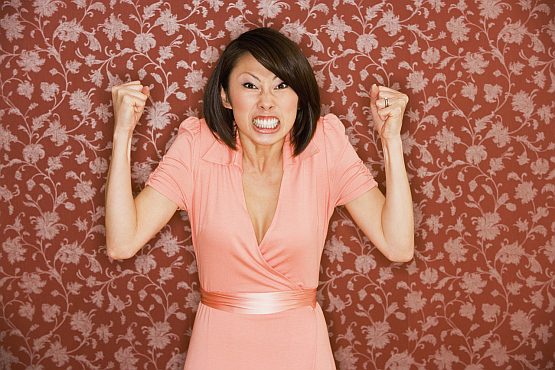
Angry Asian woman with hands in fists — Image by © Don Mason/Blend Images/Corbis
In the world of the internet where there is no God, only content, a tweet can become front page news. A fight between friends can generate millions of impressions, and something as basic as a potato chip can go viral. So it’s easy to want to point out something that bothers you on an online forum or on Twitter.
Taking a stand against the ills of the Asian male patriarchy and toxic Asian masculinity seems as simple as a tweet away. 140 characters to take down all the evil Asian men that stand in the way of good, non-Asian (see: White) knights to save your derriere in distress.
But standing against toxicity doesn’t mean you actually mean you stand for a healthy masculinity, and it’s easier to call something out than it is to offer up (and actively work towards) a solution.
Again, I recognize my male privilege and can check that, but don’t use toxic masculinity as a club to make Asian men fall in line. It has the exact opposite effect where Asian men form coalitions and communities to segregate themselves and actively fight against your efforts.
And for all the hard work these stalwart citizens of the internet do – the keyboard jockeying, the article writing, the FaceBook group wars that Asian women warriors spend hours upon hours on – they actually do more harm than good in the long run, and in very interesting, easy-to-miss ways.
AFs and WMAFs start creating their own silos of #ToxicAsianFeminity with #ToxicAsianMasculinity as their club.
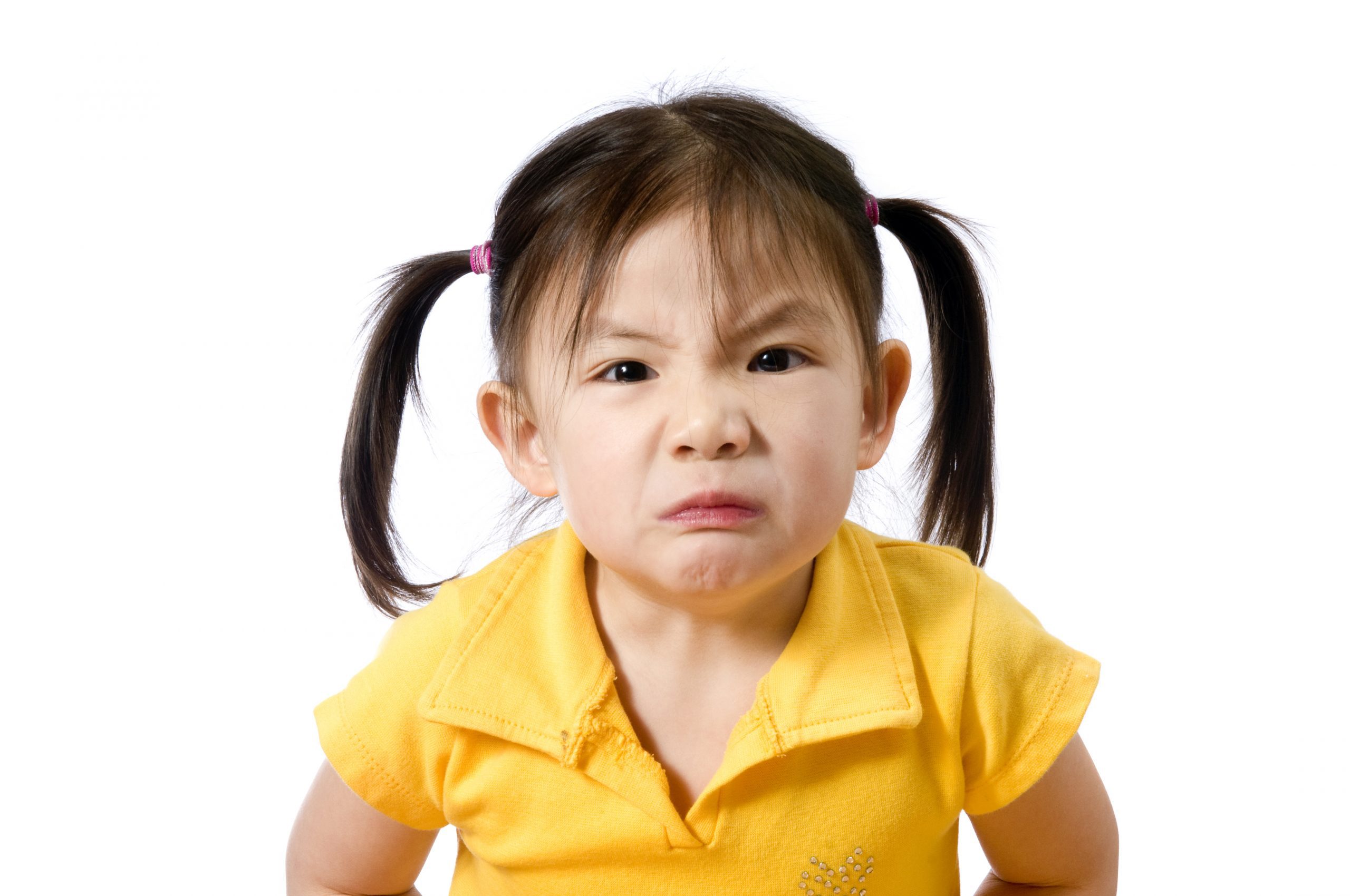
Getting angry online has only helped those you’ve tried fighting against.
By using the term “toxic masculinity” as a weapon to tear down, you’re merely pointing out a problem, not offering a constructive solution to build up. How well do you respond to a man pointing out your problems? What if your husband only pointed out problems and did little else? What would you feel? How would you react?
How do you expect us to react when we’re basically told we’re terrible and then it’s left at that?
By lowering the club that is “toxic masculinity” and not bashing us over the head with it, we can begin to discuss solutions and create a healthy masculinity. But this is a conversation that we as Asian men get to dictate and you as Asian women get to give input when needed. We will tell you our needs, wants, and desires, and you, as an ally, should listen and offer constructive criticism when asked and a listening ear when not asked.
One way we can build a healthy masculinity is through the dating arena. Believe it or not ladies, being a man in the dating arena can be terrifying. We’re expected to do a lot of leading through social cues many of us aren’t even fully aware of, and this goes doubly so for Asian men.
When were we taught how a woman conveys interest in us? How are we supposed to learn what flirting is? And who the hell is supposed to teach us how to differentiate between when a woman wants more or if she’s being polite? If she’s turned on or if she’s too scared to say anything? Who teaches us these things? Do we magically learn them through our literally non-existent experience?
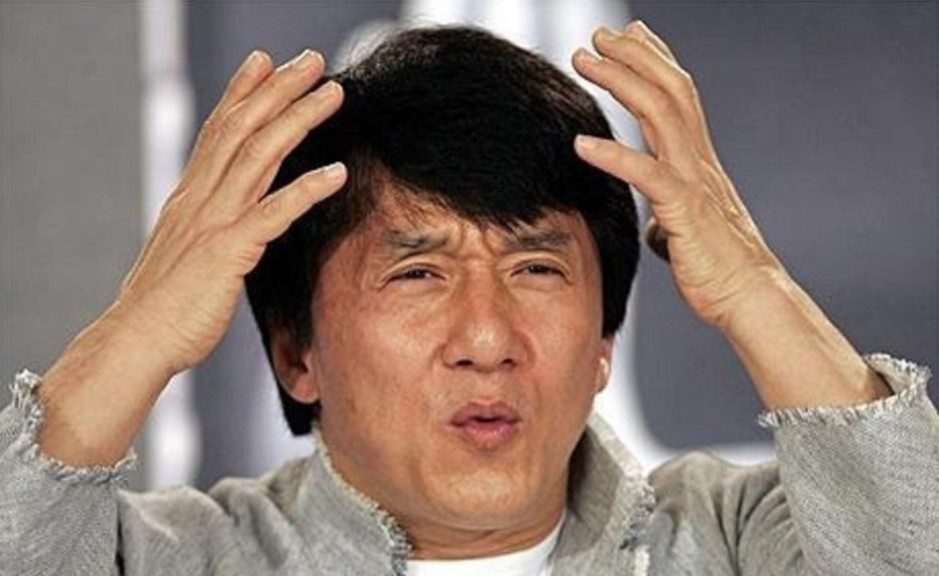
Literally, how do you think we’re supposed to learn dating? Osmosis?
This is why my work as a dating coach is critical. I’m teaching men who have never had much in the way of EQ what consent is. How to respectfully flirt with a woman. How to know when to go for it and when to pull back out of courtesy. A man needs to know these things, and there is no shame in learning from someone who respects a woman’s mind, body, and choice.
By telling men they cannot learn from a dating coach – and a gentlemanly one who would never advocate rape – is policing their right to learn how to find a mate. There is little difference between going to a personal trainer for weight loss and going to a dating coach for relationship gains. Saying otherwise is policing the very men you get mad at for seemingly policing you.
Ironic.
OKCupid, the statistics site disguised as an online dating service, once found that, when you take White people out of the equation, Asians actually preferred each other. And above all, Asian men have never wavered in their preference for Asian women, even though it’s not reciprocated. From the desired physical attributes to the similar tastes in food, music, and values, Asian men and women are inextricably linked to each other.
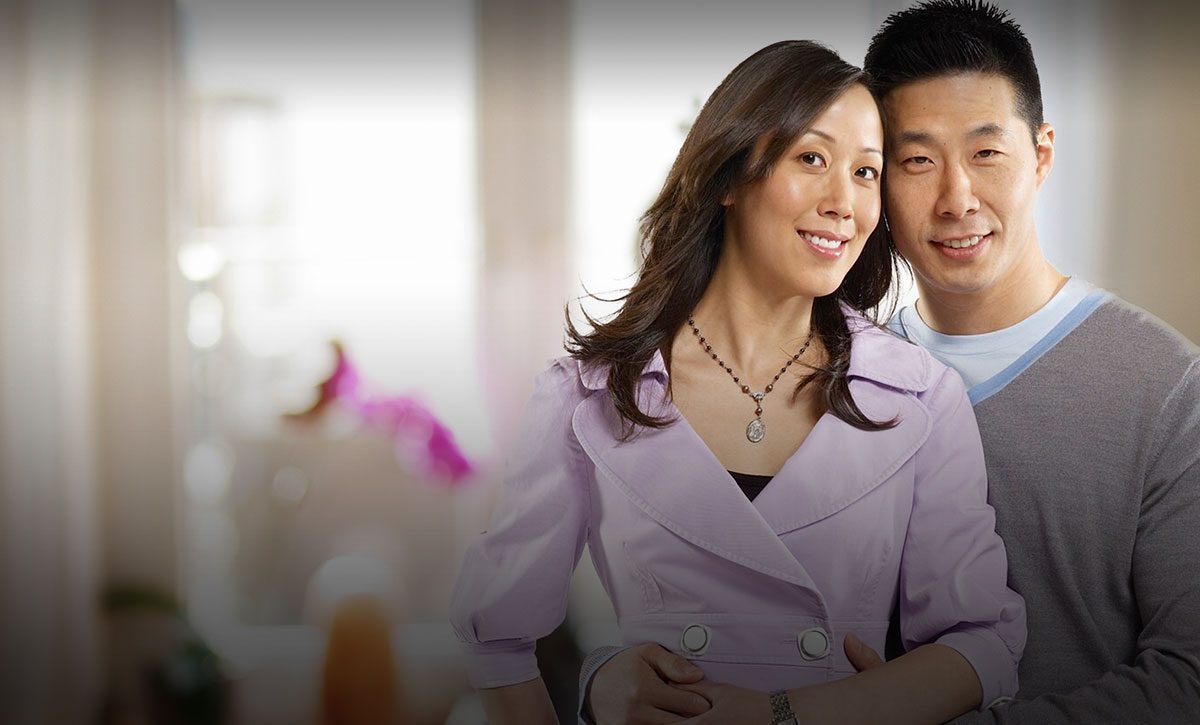
Truthfully, we love our sisters. We always have.
We are brothers and sisters in arms, trying to navigate our unique way through a society that doesn’t actively accept us for one reason or another.
We understand your struggle. We’ve heard your narrative. We feel your pain. We love you and want to help you.
But we will not do so at the cost of our own self-love, self-esteem, and mental stability.
Allow us our masculinity. Allow us our safe space. Allow us our ability to find ourselves as Asian men in a Western world. Let us dictate what Asian masculinity is.
Support us, and we will support you.
Let us lean on you, as you should be able to lean on us.
Understand our plight and how it differs from yours. Listen to our narrative, as it joins with yours to complete the Asian-American story.

Ours is a broken community. But we can fix it. Together.
Our community is fractured, but not beyond repair. We can fix it, together. We can make it whole.
If all of this is too hard, then please, in the very least – be kind to the Asian man that asks you out. One day, your Asian son will ask out a woman, and it is my hope that the woman he desires will at least have the courtesy to speak to him in a humanizing way – something that was deprived from us.
With sincere love,
Your Asian Brothers, Cousins, Fathers, Friends, and Sons.
———————————————————————
JT Tran is “America’s #1 Asian Dating Coach” and founder of the ABCs Of Attraction.
He has taught at Yale, Harvard, and Wharton as well as having been interviewed as a confidence and leadership expert for NBC, FOX, ABC, and Nightline.
He teaches a holistic and masculine positive form of practical dating advice for Asian men around the world.
